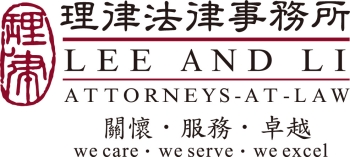Rights holders can adopt various preventive measures when litigating against infringers. These include applying for a provisional attachment order, which freezes the infringer's assets to prevent the transfer of property and secures any future compensation claim; or for a preliminary injunction, which prohibits the infringer from continuing to produce or sell the infringing products, thereby preventing further damage to the rights holder. The rights holder may also apply for the preservation of evidence relating to the infringement or the damage caused thereby, in order to prevent it from being altered, destroyed or lost. The preservation of evidence may facilitate the rights holder's evaluation of the situation and achieve the objective of preventive litigation.
Provisional attachment and evidence preservation are normally administered based on the confidentiality principle, in order to prevent the infringer from transferring assets or hiding important evidence beforehand. To this end, court orders for provisional attachment or evidence preservation are not delivered to the infringer until the day of execution – this is known as a 'surprise attack'.
However, in the case of a preliminary injunction, the suspension of related production and sales activities may significantly adversely affect the business operations of the infringer. Therefore, the Code of Civil Procedure and the Intellectual Property Case Adjudication Act clearly provide that the infringer should be granted the opportunity to be heard before a court order is issued.
Further, where the rights holder wishes to appeal a failed application for preventive measures, the second-instance court will notify the infringer to appear in court. This is based on Article 528(2) of the Code of Civil Procedure, which stipulates that "the appellate court shall, before issuing the ruling, accord the creditor and the debtor an opportunity to be heard".
Consequently, even if the appeal court agrees with the arguments of the rights holder and approves the application, the rights holder will have suffered from the loss of confidentiality, undermining the effectiveness of either a provisional attachment or evidence preservation action.
To optimise the probability of provisional attachment or evidence preservation, rights holders are often forced to abandon the right of appeal or even seek to file a new application for provisional attachment with another court. However, the latter is sometimes unfeasible as, under the prevailing law, the IP Court has primary jurisdiction over matters relating to IP rights.
The law treats provisional attachment as a preventive measure. Confidentiality is particularly important to prevent infringers from concealing or disposing of their property before the execution of a provisional attachment order. Pursuant to Paragraph 1, Article 132 of the Compulsory Enforcement Act, a provisional attachment should be executed before or when the court order is delivered to the debtor. The same principle should apply to appeal procedures; otherwise, it would be almost impossible to fulfil the legislative objectives of provisional attachment.
This legal issue has long been debated in judicial circles and created significant difficulties for rights holders and other creditors. However, at the 12th Civil Court Conference (held on August 19 2014), the Supreme Court resolved that courts are no longer required to accord infringers the opportunity to be heard in appeals against dismissed applications for provisional attachment in cases where confidentiality is necessary.
With regard to the application for evidence preservation, which involves the same need for confidentiality, the Supreme Court has not yet clarified its standing. It is still difficult for rights holders to obtain evidence through a surprise attack where a request for an evidence preservation procedure has been dismissed at first instance.
For further information on this topic please contact Hsiu-Ru Chien or Alina Tang at Lee and Li Attorneys at Law by telephone (+886 2 2715 3300) or email ([email protected] or [email protected]). The Lee and Li website can be accessed at www.leeandli.com.
This article was first published by the International Law Office, a premium online legal update service for major companies and law firms worldwide. Register for a free subscription.




